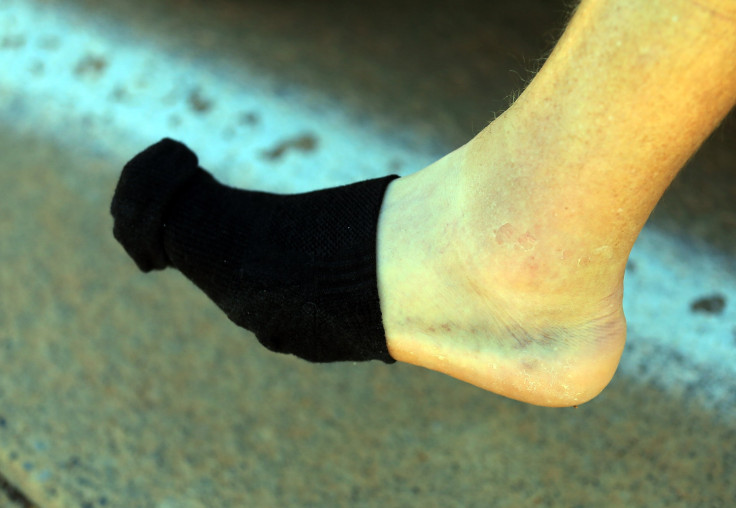Unexplained Bruising Have You Feeling Blue? Here Are Six Possible Reasons Why You Have Them

You wake up with a faint trail of bruises down your leg. Depending on what you were up to the day before, a few possibilities race through your mind. Did I whack my leg on something while I was at the gym? Did I fall down at the bar? Did I just have a run-in with my bedpost?
Mysterious bruises plague many of us, and they can be disconcerting. Most of the time, we just forget minor bumps and injuries that can cause bruises, leaving us confused when we start turning purple. In rare cases, though, sudden and unexplained bruising can be a symptom of something more serious than a forgotten clumsy moment.
Here are six possible reasons for unexplained bruising, ranging from the easily remedied to some concerning problems.
Vitamin Deficiency
Certain vitamins have a role in making blood, clotting cuts, and healing wounds. Minor deficiencies of these vitamins may not cause any symptoms, but if the shortage is allowed to progress, a multitude of symptoms can arise, including bruising. Vitamin B12 works with folate to make the DNA of red blood cells. A deficiency can cause bruises to appear more easily than usual. Vitamin K is important for clotting, and a lack of it can lead to leaky blood vessels, which in turn could be responsible for mysterious bruises. Lastly, Vitamin C is responsible for synthesizing collagen and other proteins that make skin and blood vessels. Unsurprisingly, a lack of it makes blood vessels weak and more susceptible to breakage, aka bruising.
Introducing more vitamin-rich foods to your diet or taking a multivitamin can help clear up nutritional deficiency, and any annoying bruises it may have caused.
Aging
Unfortunately, aging is an inescapable cause of bruising. Aging skin may appear thinner, more translucent, and paler due to changes in its outermost layer. Changes in a deeper layer called the dermis, however, can cause excessive bruising. Blood vessels in the dermis become more fragile with age, leading to a range of bruising issues that include senile purpura and cherry anginomas.
There isn’t any way to reverse these conditions, but avoiding sun damage throughout your life could prevent them altogether. Good nutrition and hydration can also help the appearance of aging skin, as these measures can slow its weakening.
Von Willebrand Disease
A relatively common affliction, Von Willebrand disease is characterized by easy bruising along with other signs of blood problems, like excessive bleeding during surgery or menstrual periods. The condition affects about 200,000 Americans every year and is the most common hereditary coagulation abnormality in humans. A deficiency of Willebrand factor protein, which usually acts as an important component in the body’s blood-clotting process, causes it.
The disease is almost always inherited, but in rare cases it can develop later in life. Though the condition has no cure, doctors can treat it effectively with medication and replacement therapies.
Weightlifting
Though working out is one of the best things you can do for your health, excessive exercise can be behind your unexplained bruising. Significant strain or stress can cause the body’s blood vessels to tear and break, which is why people sometimes get nosebleeds while doing something draining, and why vomiting can cause popped blood vessels around the eyes. Intense weightlifting is no different — the stress of lifting something heavy can cause tears in blood vessels, which lead to bruising.
This type of bruising may be unsightly, but it’s mostly harmless. Unless a bruise is especially large, painful, or long-lasting, there’s no need to see a doctor.
Diabetes
Diabetes affects the body well beyond its blood sugar levels. The condition can disrupt circulation, which makes it easier for skin to bruise. People with diabetes can develop hyperglycemia, too much glucose in the blood, and this can damage blood vessels over time and cause bruises.
Watch for excessive thirst, blurred vision, fatigue, and difficulty fighting off infections in addition to your bruises. Together, these symptoms are a sign of diabetes and could warrant a visit to the doctor.
Thrombocytopenia
A clotting disorder, thrombocytopenia causes low blood platelet count. Platelets are responsible for clumping up and forming a plug when blood vessels are injured. A lack of them increases the chances of bruising, which can become excessive in some cases. Thrombocytopenia often appears secondary to another condition, such as pregnancy, an immune disorder, or even Leukemia.
If you’re experiencing consistent bruising, or the pooling, rash-like bruises called purpura, head to the doctor — there could be a serious problem.



























